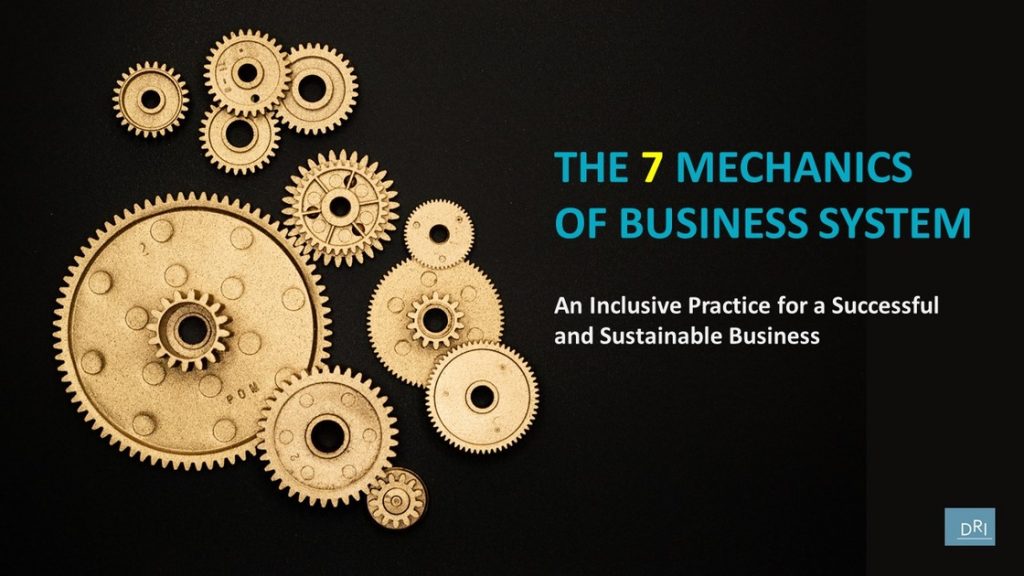The last few years have been some of the most testings from a business point of view.
During the pandemic, a survey showed that more than 40% of all businesses had directly been affected either during, or as a result of Covid restrictions.
The knock-on effect means that there is on average a 3% greater chance of business closure than before the pandemic.
For new businesses, this can hurt even more.
Every year, thousands of startups are launched.
According to recent studies, about 90% of all startups don’t succeed, and five out of seven fail within the first 18 months.
If you want to start a successful business, you should know what these businesses did wrong.
In success, there is certainty — but in failure, every excuse will be possible. We have broken it down into the 7 most important fundamentals and secret strategies that will give you the best chance for success.
1. Be Honest With Yourself
It is important, to be honest about where the business really is. Do not try to sugarcoat or put a spin on the facts. Nobody likes to hear that their baby is ugly, but this is exactly what entrepreneurs need to hear in order to succeed. As many entrepreneurs have learned, the road to success is often paved with mistakes and disappointments.
“The biggest mistake new entrepreneurs make is that they are not honest with themselves about where their business is,” says Donna Myers, CEO of Myers Public Relations and Marketing in Virginia Beach, Virginia. “These same entrepreneurs will take on any client without vetting them first, which could lead to financial ruin.”
2. Find a Way to Meet Your Client’s Needs Better Than Anybody Else.
No matter where you live, there are people who need help. Whether it is a business owner, a single parent with two kids, or someone trying to get out of debt, there are people in every industry with needs that aren’t completely met by available products.
If you want your business to succeed, you have to be able to meet those needs better than anyone else. One great way to do that is to find a niche market nobody else has addressed.
This doesn’t mean you have to start from scratch. There are tons of successful businesses that started with an established product or service and then expanded into new areas. For instance, the first McDonald’s restaurant was originally just a hot dog stand in San Bernardino, California. The company expanded into hamburgers and cheeseburgers before expanding beyond the Golden State altogether.
But even if you didn’t start with what most people would consider a “niche,” there are still plenty of ways you can grow your business without having to start from scratch.
What are you doing that is different than everybody else?
You do not have to go too far out on a limb to do something extraordinary. You can be extraordinary by just giving the best customer service, knowing your customers better than anybody else, or having the best product knowledge in your industry. Many times, the simplest things are what set you apart from the competition.
3. Use Marketing That Delivers High Value To Your Customers
Most business owners are familiar with the idea of marketing, but they often have a difficult time figuring out which avenue to use to best market their products and services. Some businesses will spend hundreds of thousands of dollars on traditional advertising, while others will opt for new forms of marketing such as social media or email marketing.
No matter what type of marketing you choose, it is important that you focus your marketing efforts on delivering value to your prospective customers. After all, no one wants to hear about how great you are – they want to know what is in it for them
What is the best way to do this? You need to find a way to meet your client’s needs better than anybody else. If you can accomplish this feat, then you will be well on your way toward creating an effective marketing campaign that will generate more leads and sales for your business.
4. Perfect Your Sales Systems
The next piece of the success puzzle is your sales system. Your sales system is the process you use to convert your contacts into customers. It is how you get people to trust you and buy from you, using your email list, social media followers, or other marketing channels.
Your sales system has two parts: a front end (the beginning of the customer relationship) and a back end (after the customer buys). Depending on what kind of business or product you have, there may be just one step in each part of your sales system. Or there may be multiple steps.
If you are selling a high-ticket item like an online course or a consulting package, for example, you might attract leads through Facebook ads or content upgrades on your blog posts. You will then nurture those leads by sending them emails that build credibility and trust until they are ready to talk with you directly over the phone. Once they’ve joined your program, they will go through a series of follow-up emails and calls with information about how to get started and continue getting the most out of it.
For a lower-priced product like an ebook or printable planner, the process might be much simpler — someone sees an ad for your product, clicks on it, and buys it. Once the purchase is made, the after-sales service like delivery time and quality of the product will be very important if you want that customer to return and spend more of their hard-earned money with you.
5. Invest in Good Legal Council And a Good Accountant
The first piece of advice that any entrepreneur should have is to invest in great legal counsel. This is going to be the person or firm that helps you set up your business, and will give you legal advice as your company grows. You will want someone who specializes in small businesses and can help guide you so you do not run into issues down the line.
It is important that you have a good accountant too. This is the person who will help with your taxes, and file them. They can also give you advice on how to save money on your taxes, and make sure there are no errors on your end when it comes time to pay taxes.
6. Optimize & Maximize Your People & Processes
Like any machine, your company is only as good as its parts. If you are not getting the results you need, it is time to audit your people and processes. From there, it is a simple matter of optimizing and maximizing them. You will need to:
- Automate what you can
- Hire what you cannot
- Track everything
- Tie everything together with KPIs
These may sound like soft skills, but they are essential for competitive advantage. Why? Because a well-trained workforce that can collaborate effectively on continuous improvement is the key to solving problems faster than your competitors. You can work on improving your processes or fixing mistakes once or twice a month if you want — or every day. It is up to you — but your competition will be working to improve every day, so do not expect them to stand still.
Consider what it would mean if your employees could solve problems more quickly at every step of the process instead of waiting until the end of the day to go home, then coming back tomorrow to fix it:
You’d be able to deliver value faster than your competitors because you’d eliminate wasted time and effort.
7. Make Your Customers Love You Openly
The word “customer” most often refers to a purchasing customer, but it is important to recognize that every person who comes in contact with your business or product is a customer. Some may be people who use your products instead of buying them. Some may be people — such as vendors, freelancers, and employees — who work with you instead of for you. And some may be people who have never bought anything from you or used any of your products.
A customer’s goodwill toward your company isn’t something you can buy at any price. You have to earn it over time, by showing that you care about and respect the people around you.
Goodwill is an intangible asset, but one with a high return on investment. There are multiple ways to increase it, including:
- Being honest and keeping promises;
- Making good products that satisfy customers
- Being consistent with policies and practices
- Respecting customers’ time
- Having a sense of humor about yourself and your company
- Having sympathy for customers when things go wrong
- Offering free samples
Conclusion
This list is a blueprint for how to start a successful business. If you monitor your business and make sure that this list is constantly being improved upon then you will be successful regardless of the economic environment. It may take some time but with dedication, self-improvement, and hard work, your business can grow rapidly.
The Destiny Team
***********************************



